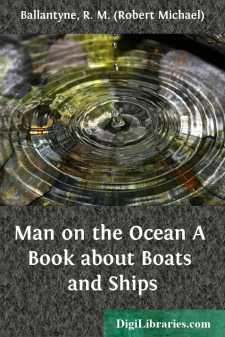Categories
- Antiques & Collectibles 13
- Architecture 36
- Art 48
- Bibles 22
- Biography & Autobiography 816
- Body, Mind & Spirit 145
- Business & Economics 28
- Children's Books 17
- Children's Fiction 14
- Computers 4
- Cooking 94
- Crafts & Hobbies 4
- Drama 346
- Education 58
- Family & Relationships 59
- Fiction 11834
- Foreign Language Study 3
- Games 19
- Gardening 17
- Health & Fitness 34
- History 1378
- House & Home 1
- Humor 147
- Juvenile Fiction 1873
- Juvenile Nonfiction 202
- Language Arts & Disciplines 89
- Law 16
- Literary Collections 686
- Literary Criticism 179
- Mathematics 13
- Medical 41
- Music 40
- Nature 179
- Non-Classifiable 1768
- Performing Arts 7
- Periodicals 1453
- Philosophy 66
- Photography 2
- Poetry 897
- Political Science 203
- Psychology 45
- Reference 154
- Religion 516
- Science 126
- Self-Help 85
- Social Science 82
- Sports & Recreation 34
- Study Aids 3
- Technology & Engineering 59
- Transportation 23
- Travel 463
- True Crime 29
Our website is made possible by displaying online advertisements to our visitors.
Please consider supporting us by disabling your ad blocker.
Blown to Bits The Lonely Man of Rakata, the Malay Archipelago
Categories:
Description:
Excerpt
The Play Commences.
Blown to bits; bits so inconceivably, so ineffably, so “microscopically” small that—but let us not anticipate.
About the darkest hour of a very dark night, in the year 1883, a large brig lay becalmed on the Indian Ocean, not far from that region of the Eastern world which is associated in some minds with spices, volcanoes, coffee, and piratical junks, namely, the Malay Archipelago.
Two men slowly paced the brig’s quarterdeck for some time in silence, as if the elemental quietude which prevailed above and below had infected them. Both men were broad, and apparently strong. One of them was tall; the other short. More than this the feeble light of the binnacle-lamp failed to reveal.
“Father,” said the tall man to the short one, “I do like to hear the gentle pattering of the reef-points on the sails; it is so suggestive of peace and rest. Doesn’t it strike you so?”
“Can’t say it does, lad,” replied the short man, in a voice which, naturally mellow and hearty, had been rendered nautically harsh and gruff by years of persistent roaring in the teeth of wind and weather. “More suggestive to me of lost time and lee-way.”
The son laughed lightly, a pleasant, kindly, soft laugh, in keeping with the scene and hour.
“Why, father,” he resumed after a brief pause, “you are so sternly practical that you drive all the sentiment out of a fellow. I had almost risen to the regions of poetry just now, under the pleasant influences of nature.”
“Glad I got hold of ’ee, lad, before you rose,” growled the captain of the brig—for such the short man was. “When a young fellow like you gets up into the clouds o’ poetry, he’s like a man in a balloon—scarce knows how he got there; doesn’t know very well how he’s to get down, an’ has no more idea where he’s goin’ to, or what he’s drivin’ at, than the man in the moon. Take my advice, lad, an’ get out o’ poetical regions as fast as ye can. It don’t suit a young fellow who has got to do duty as first mate of his father’s brig and push his way in the world as a seaman. When I sent you to school an’ made you a far better scholar than myself, I had no notion they was goin’ to teach you poetry.”
The captain delivered the last word with an emphasis which was meant to convey the idea of profound but not ill-natured scorn.
“Why, father,” returned the young man, in a tone which plainly told of a gleeful laugh within him, which was as yet restrained, “it was not school that put poetry into me—if indeed there be any in me at all.”
“What was it, then?”
“It was mother,” returned the youth, promptly, “and surely you don’t object to poetry in her.”
“Object!” cried the captain, as though speaking in the teeth of a Nor’wester. “Of course not. But then, Nigel, poetry in your mother is poetry, an’ she can do it, lad—screeds of it—equal to anything that Dibdin, or, or,—that other fellow, you know, I forget his name—ever put pen to—why, your mother is herself a poem!...












